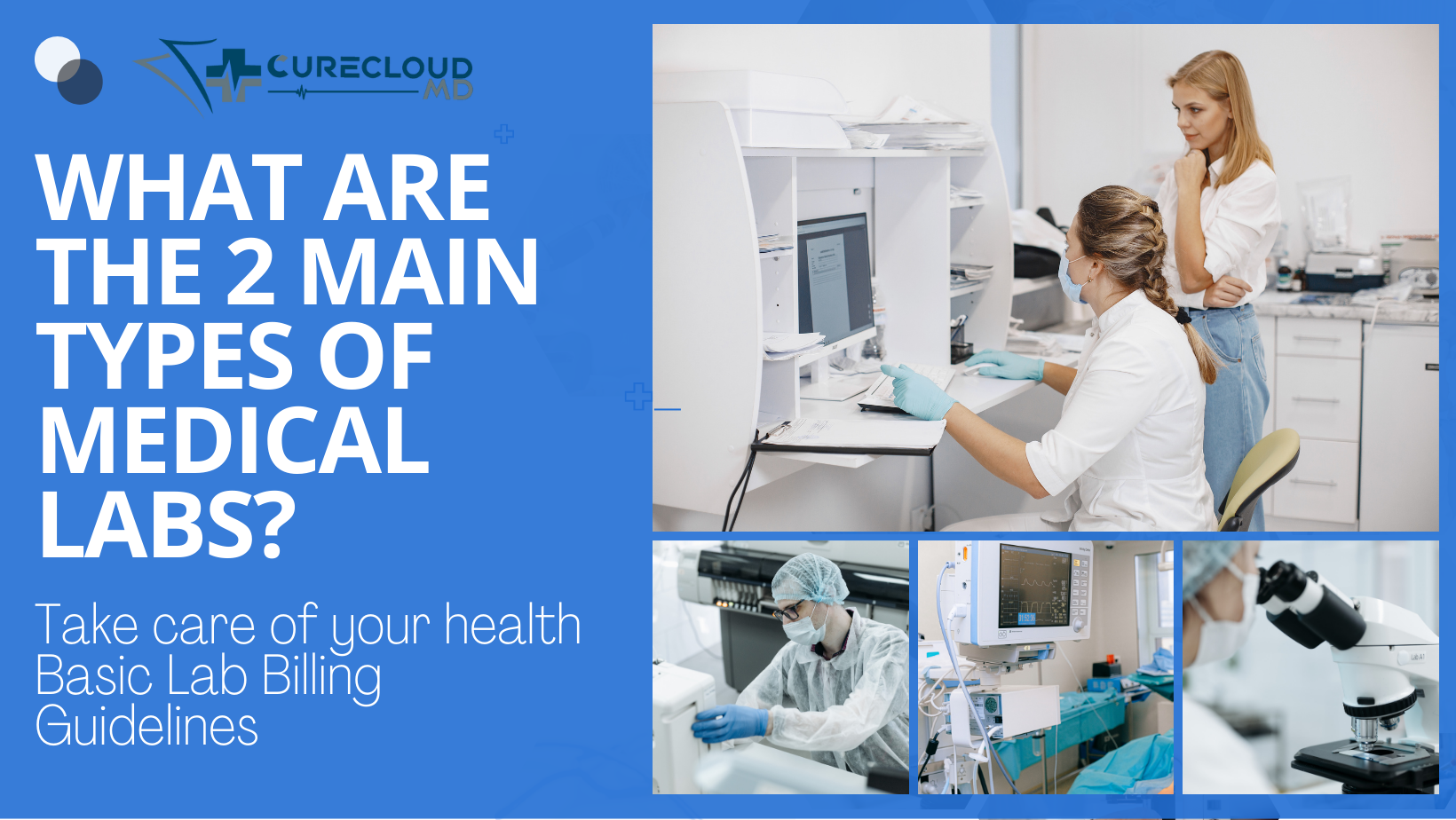The studies and lab tests are responsible for 70% of clinical choices and they make up 80% of patients’ electronic health records. However, they only get paid 3-5% of total healthcare revenue. Certainly, healthcare labs have a significant effect on clinical decision-making and patient results and they also require special attention for lab billing services. It’ll help clinical labs to prosper financially and deliver better quality services.
Why is Laboratory Billing Important?
Laboratory medical billing procedures are quite unique and more complicated than general billing solutions. To start with, the administration of a healthcare lab takes a vital role in analyzing and directing treatment plans. Doctors and their associates use their data i.e. ICD codes to help patients recover from different ailments and deliver on-par medical care services.
Moreover, if a lab is associated with a hospital or any other medical facility then such practices have a chance of earning better revenues. Therefore, if laboratory medical billing procedures are handled with great expertise and advanced solutions, practices can claim their reimbursements without any hassle. It improves your business growth and encourages your office team to perform better.
How Does Lab Billing Services Differ From Traditional Medical Billing?
As mentioned earlier, healthcare labs are different from general medical billing because it consists of unique procedures with their own exceptional and innovative codes. It requires specialized expertise to learn and imply accurate ICD codes to describe medical lab procedures.
Also, with the recent transitions from ICD-9 to ICD-10 and ICD-10-CM codes, it has become more difficult for lab medical coders to comply with industry changes. Therefore, healthcare labs require qualified lab medical billing and coding specialists in their administration to improve their business workflow.
Even there are different natures of healthcare labs that with their own distinct responsibilities and medical billing criteria.
Types Of Medical Labs
There are two major types of medical labs each serving a unique purpose as follows;
-
Clinical Laboratories
Clinical laboratories are responsible to evaluate patients who take part in clinical trials. In such labs, practitioners take a sample for examination from the patient’s body to interpret a medical condition. This examination helps physicians, doctors, and healthcare practitioners to make insightful decisions for the treatment, prevention, and diagnosis of the disease.
These kinds of tests are performed in the following labs;
- Biological Labs: Bio labs support biological research on animals and plant tissues.
- Microbiological Labs: Microbiological labs are designated to culture, examine and identify microorganisms including bacteria, fungi, yeasts, etc.
- Serological Labs: The serological labs are rooms where blood specimens are detected for public health concerns. A serology test is performed to identify, detect and measure the level of antibodies in the patient’s blood.
FYI, when patients are exposed to particular bacteria or viruses then their immune system produces some antibodies against the microorganisms. With serology tests, physicians can determine the level of antibodies and analyze if the disease has happened recently or way before.
- Chemical Labs: This lab is responsible to prepare and analyze various solid and liquid samples for clinical purposes. Chemical labs comprise essential equipment including traditional tools i.e. glassware, fume hoods, a muffle furnace, a centrifuge, an aggregate mill, and ovens.
- Immuno-Hematological Labs: Immunohematology is the study of RBC antigens and antibodies that are associated with blood transfusions.
- Hematology Labs: Hematology is the study of blood composition, blood-forming organs, and blood diseases. Hematology labs are responsible to analyze whole blood, serum, urine, cerebrospinal fluids, and other body fluids to determine and identify diseases that are caused due to these fluids.
- Biophysical Labs: The biophysical laboratory is a consortium of small instruments mainly used for the characterization of biomolecules and biomolecular interactions. The instrumentation includes Circular Dichroism, Dynamic Light Scattering, Isothermal Titration Calorimetry, and Surface Plasmon Resonance.
- Cytological Labs: These labs study the specimens from various body parts to detect and identify several diseases i.e. cancer, precancerous changes, and other medical conditions.
-
Diagnostic Laboratories:
Diagnostic labs are the areas of the medical industry that have the essential equipment and apparatus to perform tests and diagnose human infections. It helps healthcare providers, physicians, and doctors to make clinical choices and provide accurate treatment services to patients.
The major difference between clinical labs and diagnostic labs is that the former requires a pathologist and a lab technician to run and interpret samples whereas diagnostic labs require a physician or other certified medical professional to diagnose patients’ diseases.
Following are the types of diagnostic labs;
- Pathology Labs: A pathology lab is a medical area that is responsible to test clinical specimens and diagnose patients’ diseases. These labs further provide these reports to clinical settings where they can deliver treatment services to the patients based on pathology lab tests.
- Blood Banking Services:
A blood bank is a lab where blood is collected and stored before it is used for transfusions. Such labs are designated to make sure that the donated blood and related products are kept in a safe environment. These labs also test the blood samples to determine the blood type. These labs are also responsible to test and diagnose blood diseases.
Each type of laboratory has unique traits and a billable set of medical codes. Therefore, lab medical billing professionals should understand the core competency of each lab test procedure to imply accurate CPT (Current ProcedureTechnology) and ICD codes.
Having said that, lab billing procedures require expertise in collecting data from all the sources using LIMS solutions to channel this information for lab healthcare revenue cycle management (RCM).
However, finding a professional laboratory billing expert who is well-versed in the nuances of lab RCM, medical terms, and human anatomy could be a difficult and expensive choice for lab professionals.
Even if you’re an independent lab or associated with a hospital, outsourcing lab billing services could help you reduce your OPEx (operational expenses) as well as CAPEx (capital expenses).
Here’s how outsourcing laboratory billing and coding services will make wonders for your practice;
How Does Outsourcing Laboratory Billing Work?
Maintaining an in-house medical billing department comprises several complications and features huge cost overheads. Here are some highlights of the pros and cons of an office-based medical billing team;
Pros Of In-House Medical Billing Services:
- You can manage your medical billing team with more stringent control and scrutinize their performance closely.
- You can adjust the working hours of your medical billing team when needed.
- An in-house medical billing team is responsible to report their work performance regularly.
- A healthcare provider doesn’t need to expose PHI (protected health information) to a third party so it’s easier to ensure HIPAA compliance.
Cons Of In-House Medical Billing Services:
- In order to expand your medical billing team, you have to invest your time and money to find the best professional billers and coders.
- It is a time-intensive job to train and educate an in-house medical billing team.
- You have to expand your OPEx to pay the salaries, annual bonuses, appraisals, and paid holidays of your employees.
- Your team has to be proactive to acquaint themselves with ever-changing medical billing and coding rules which require more investment.
Here’s how outsourcing laboratory medical billing services would help you reduce your headcount and expenses.
Pros Of Outsourcing laboratory medical billing services
- When you outsource lab billing services then you have to only pay fixed charges. Usually, medical billing outsourcing companies charge healthcare practices and facilities in the following ways;
- A fixed percentage of revenue from each claim they file.
- A fixed percentage from the reimbursements they collect on your behalf.
- A fixed rate per hour.
In this way, lab technicians don’t need to expand their capital expenses to increase their resources instead they can pay a fixed amount to a reliable lab medical billing company that can take charge of their entire healthcare revenue cycle management at a more cost-effective rate.
- Outsourcing lab billing services allows you to shed the stress away of hiring new employees. You can get connected with a professional team of medical billing and coding specialists who can meet the growing needs of your business at the fraction of an in-house medical billing department.
- When you outsource lab billing services to a reliable medical billing company then you’re allowed to focus more on the core competencies of your business i.e. pay attention to patient care services rather than stay busier in the paperwork.
- A laboratory billing outsourcing company works as a virtual team of your healthcare practice which helps you get ample room for more equipment and you can expand your lab services as well.
Cons Of Outsourcing Lab Billing Services
Along with benefits, there are also some limitations of outsourcing lab billing services that are as follows;
- You cannot closely monitor the performance of an outsourced laboratory medical billing and coding team.
- It’s difficult to find the most reliable and best medical billing company that provides medical billing and coding services for your specialty and state.
If you’re also struggling with the same challenges as mentioned above then don’t worry anymore! CureCloudMD is a well-established medical billing company in the USA that’s been operating since 2010 all around the country. We provide highly transparent, HIPAA-compliant, and specialty-specific laboratory medical billing services for all the sub-specialties as well. Get connected with our medical billing experts and schedule a free medical billing audit with us now!




